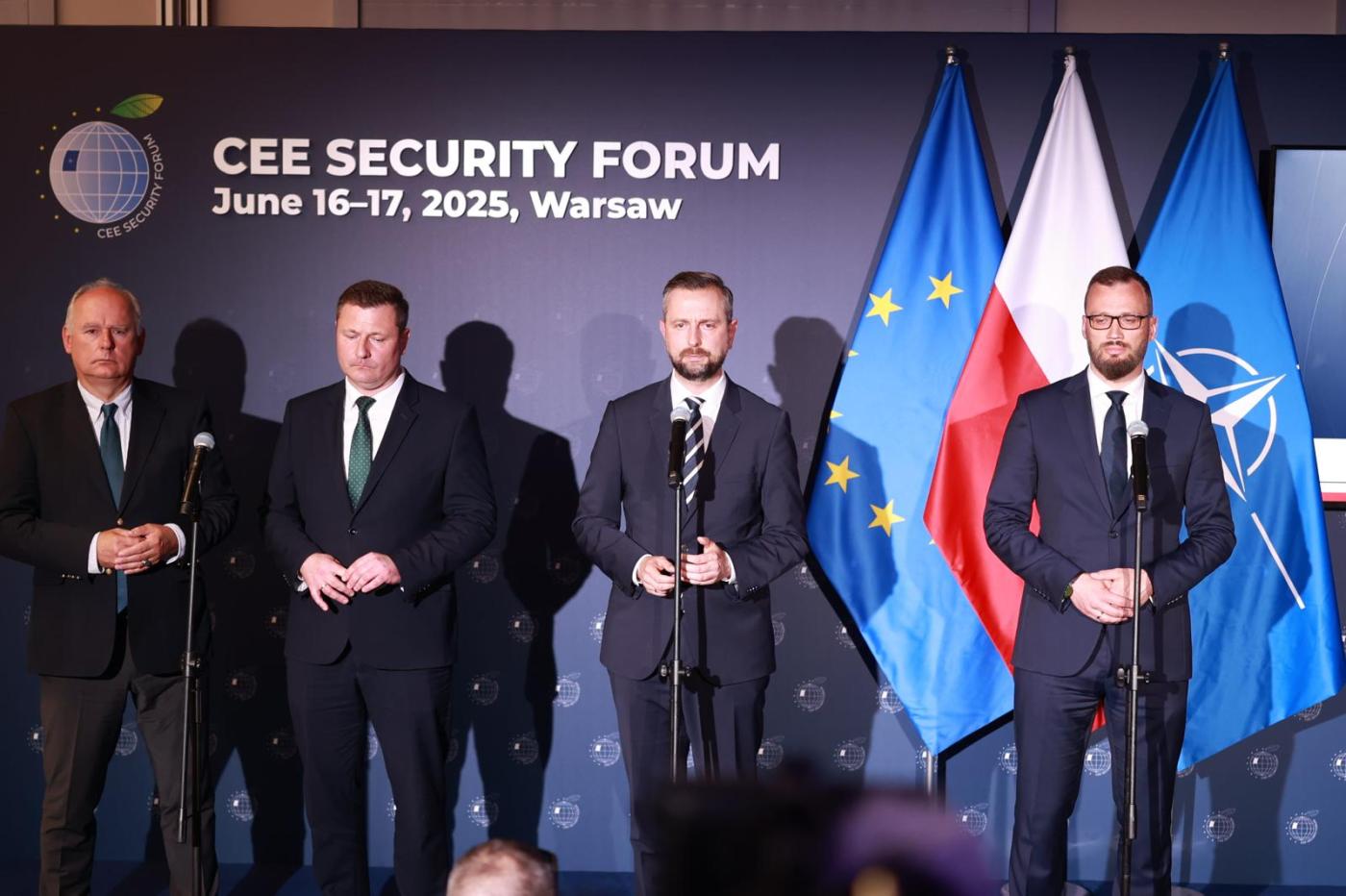Baltic Sea Security in Focus at the Central and Eastern European Security Forum
The Baltic Sea is a strategic lifeline not only for the countries bordering its shores, but also for the broader architecture of security across the European Union and NATO. From safeguarding critical infrastructure and ensuring freedom of navigation, to protecting trade corridors and bolstering airspace security, the Baltic is increasingly central to transatlantic deterrence and defense strategies.
security nato politics pomerania west pomerania news16 june 2025 | 17:03 | Source: Gazeta Morska | Prepared by: Kamil Kusier | Print

fot. MON
This emphasis was underlined by Poland’s Deputy Prime Minister and Minister of National Defence, Władysław Kosiniak-Kamysz, during the Central and Eastern European Security Forum held on June 16 at the University of Warsaw. Speaking at the high-level event, Kosiniak-Kamysz stated that Poland has formally invited its regional partners — Finland, Sweden, Norway, Denmark, Germany, Lithuania, Latvia and Estonia — to coordinate joint efforts in enhancing Baltic Sea security.
- The Baltic Sea is vital for NATO and the EU. Protecting critical infrastructure, securing trade routes, ensuring operational continuity — this is not only about defense, it's about economic potential. That’s why we’ve initiated a regional security framework that brings together all key NATO and EU actors in the Baltic, said Władysław Kosiniak-Kamysz.
Baltic Declaration: A Turning Point in Regional Defense Integration
One of the forum’s key themes was the Baltic Declaration, signed recently in Brussels during the NATO Defence Ministers’ meeting. Representing Poland, Deputy Minister Paweł Zalewski signed the document, with much of the coordination attributed to MOD advisor Maciej Samsonowicz.
- This declaration forms the backbone of Baltic Sea deterrence and defense, stated Kosiniak-Kamysz. - It responds directly to acts of sabotage, airspace violations, and GPS disruptions. NATO must respond decisively — and with Baltic Sentry already operational, we’re expanding that capability into new dimensions.
The Baltic Declaration, initiated by Poland’s Ministry of National Defence, has been signed by defense ministers of Denmark, Estonia, Finland, Germany, Latvia, Lithuania, Poland and Sweden. It represents a new strategic dynamic in regional defense cooperation, reinforcing Poland’s leadership role in shaping the security agenda across Northern Europe.
“Baltic Shield”: A Strategic Framework for Defense and Resilience
The declaration is part of a broader Polish-led strategy called “Baltic Shield” — a comprehensive defense and resilience initiative covering military, infrastructural, economic, digital and civil security aspects in the Baltic Sea basin.
Key components of the declaration include:
- Reinforced protection of critical undersea and energy infrastructure,
- Guaranteeing freedom of navigation and communication lines,
- Joint situational awareness and maritime surveillance,
- Enhanced crisis response capabilities and rapid mobility,
- Closer NATO–EU coordination in the Baltic region.
Central Pomerania: From Industrial Hub to NATO Operational Backbone
A unique element of Poland’s strategy is the “Security Pact for Poland – Central Pomerania”, an initiative that turns this vital region into a blueprint for integrated NATO readiness. The pact covers:
- Military logistics infrastructure,
- Energy resilience and industrial capacity,
- Civil administration readiness and local government coordination.
The “Green Industrial Zone Kaszubia”, also presented as part of the Baltic Shield initiative, exemplifies Poland’s effort to link economic investment with strategic security — a concept that may serve as a reference point for allied nations around the Baltic.
- This is not just about preparedness — it’s about setting the standard, emphasized Zalewski. - Poland is showing how a front-line NATO member can fuse military capability, economic power, and political leadership to become a true center of allied cooperation in the Baltic.
see also
Buy us a coffee, and we’ll invest in great maritime journalism! Support Gazeta Morska and help us sail forward – click here!
Kamil Kusier
redaktor naczelny
comments
Add the first comment
see also
Polish Naval Academy students advance unmanned maritime systems
Winter on Puck Bay: ice conditions, natural values, and responsible use
Accident at offshore service base construction in Ustka highlights gaps in emergency medical response
Medical evacuation from offshore installation in the Baltic Sea. First naval SAR mission of 2026
Europe without illusions: sea, trade and security in the new transatlantic architecture. a voice of realism?
Winter navigation update: RZGW Szczecin closes Odra waterways and deploys icebreakers
Russian escort and U.S. oil chase: a new front in the North Atlantic. Implications for shipping and energy markets
Medical evacuation from Stena Ebba successfully conducted despite adverse weather conditions
The capture of President Nicolás Maduro: how U.S. maritime operations triggered a geopolitical turning point
The sea as an instrument of power: the maritime dimension of the U.S. National Security Strategy of 2025
ADVERTISEMENT
ADVERTISEMENT